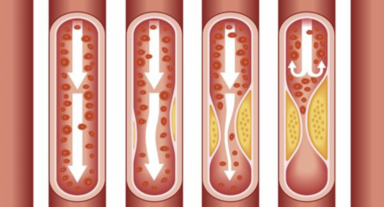Empowering Hearts: Uncovering the Gender Gap in Cardiovascular Health
Let’s shatter the myth that chronic heart disease is primarily only a concern for men. In a surprising twist, it’s women who actually bear the brunt of this condition. It’s high time we give you the facts and break free from outdated stereotypes! Cardiovascular disease doesn’t discriminate based on gender or age. Read our blog to learn more.
Have you ever wondered why chronic heart disease is often perceived as primarily a concern for men? It’s time to challenge this misconception. Surprisingly, it’s women who are predominantly affected by this condition, yet marketing tactics tend to suggest otherwise. Let’s break free from the notion that only men aged 40 and above face the risk of cardiovascular disease.
Cardiovascular disease is usually caused by a number of factors including a higher inflammatory state (rheumatoid arthritis, crohn’s disease, chronic inflammation), high blood pressure, diabetes, smoking and potentially a genetic predisposition. Not even elite athletes are risk-free still at risk of chronic heart disease.
Since technological advances have been made, cardiac interventions have decreased across most demographic groups, but unfortunately not for women aged 40-55. In fact, the rates for coronary heart disease for the female demographic are actually going up. But why is this?
If you fit within this demographic, there are specific risk factors of which many are not made aware of, and it is vital to equip yourself with the knowledge of these symptoms.
Remember, preventive cardiology can save lives.
Female Specific Risk Factors
One compelling reason why women may face a higher susceptibility to chronic heart disease is the existence of unique risk factors that simply do not affect men. These specific risk factors tend to emerge later in a woman’s life, often after she has become a mother or during the menopausal transition. Among these distinctive factors are:
- Polycystic ovary syndrome
- Oral contraceptives
- Premature menopause
- Pregnancy complications
- Autoimmune disorders & treatments
- Some cancer treatments
- Depression
Lack of Awareness
Did you know that heart attacks and strokes are a higher cause of death than breast cancer in women?
While most women are taught that they need to do regular preventive testing such as mammograms, pap smears for cancer and other diseases, there unfortunately isn’t the same level of awareness around the importance of preventive cardiac care.
While more education around the importance of heart testing will improve the rates of testing, another major barrier we’ve found in getting women in for heart testing is the general perception of CT scans.
CT scans utilise radiation which is commonly associated with causing cancer, however, when you think about the fact that there is less than a 0.05% chance that this will occur, the benefits of getting a scan far outweigh the potential risks.
With that said, securing comprehensive preventive heart care doesn’t necessarily entail undergoing a CT scan right away. Begin by consulting your trusted GP and scheduling your complimentary yearly heart health assessment. This comprehensive checkup encompasses vital measurements like blood pressure, cholesterol levels, and blood sugar, in addition to a conversation about your genetic predisposition and lifestyle choices.
We care about your heart health!
At Australian Cardiovascular Specialists, we leverage our expertise and technologies to empower individuals with crucial information about heart health risks. We advocate for both men and women to prioritise their heart health, aligning it with their preventive approaches for other chronic conditions.
For women aged 45 and above, it is recommended to initiate a conversation with their general practitioner regarding the risks of heart attacks and strokes. Subsequently, scheduling a Heart Health check is advised. Additionally, Aboriginal and Torres Strait Islander women should proactively engage with their doctors from the age of 30, as their susceptibility to cardiovascular disease is nearly twice that of the general population.
Using the links below, inform yourselves by visiting the Heart Foundation website to examine if you have any registered risk factors and ensure that you’re doing all you can for your cardiovascular health.
Resources:
Go Red For Women:
Heart Foundation:
https://www.heartfoundation.org.au/bundles/your-heart/risk-factors-for-women/
CATEGORIES: Uncategorized






